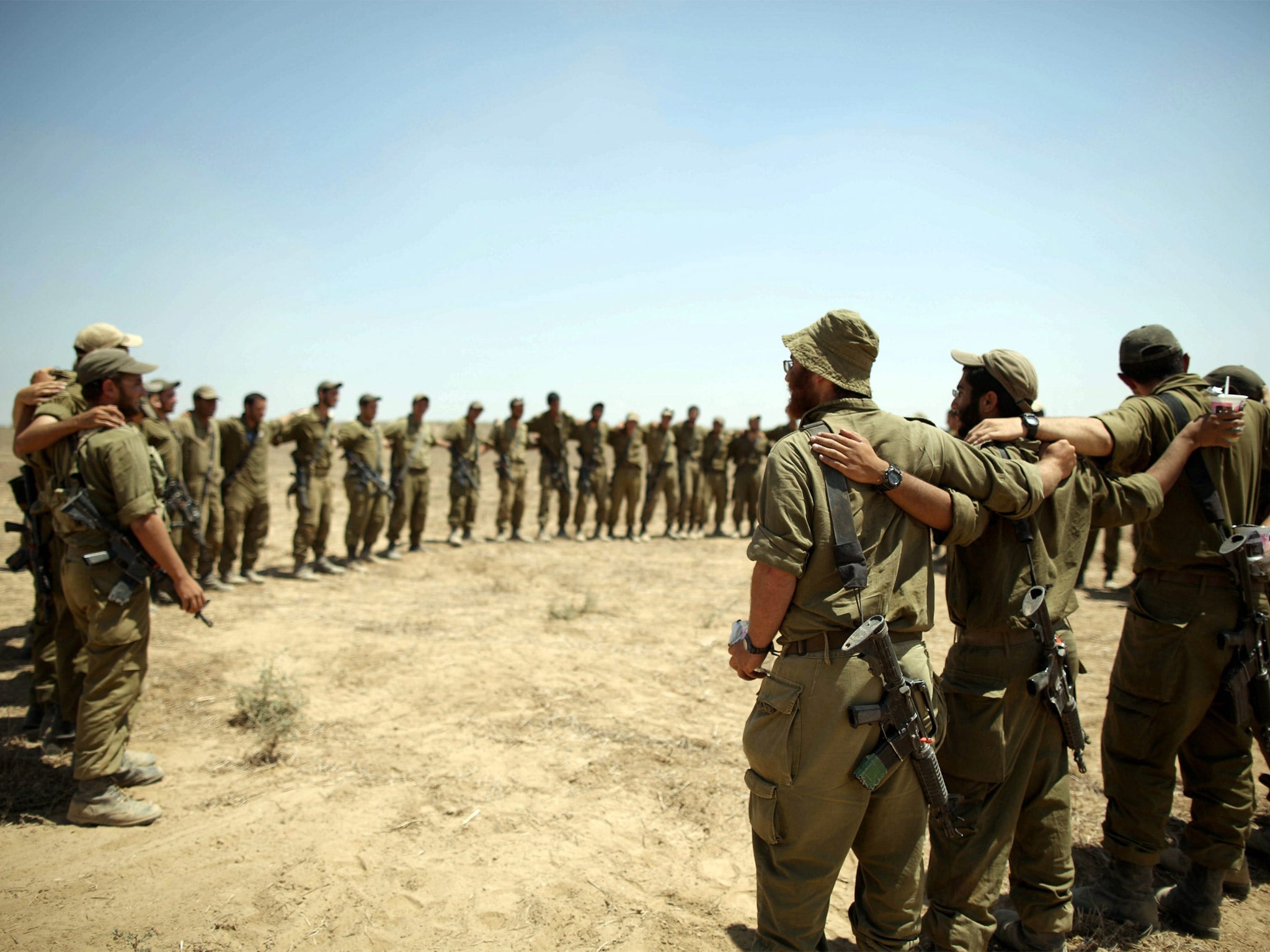This is how we can protect the citizens of Gaza and ensure the long-term security of Israel
The international community must be united and coordinated in its actions

The Prime Minister’s successive misjudgements over the crisis in Gaza this week culminated in the dramatic resignation of one of his most senior Foreign Office Ministers.
Sayeeda Warsi’s resignation letter gave a stark account of the government’s failings over Gaza, which she herself described as “morally indefensible” and “not in Britain’s national interest”.
It is a matter of deep regret that the Prime Minister failed to speak for Britain with the clarity and consistency that an issue like this demands. He rightly condemned Hamas for indiscriminately firing rockets at Israel, but has never been equally forceful in saying that the scale of Palestinian suffering at the hands of the IDF over recent weeks was indefensible and unjustifiable.
Yet while Britain’s Prime Minister stayed silent, the rest of the world spoke out.
UN Secretary General Ban Ki-moon condemned the shelling of a UN school sheltering civilians in Gaza as “a moral outrage” and “gross violation of international law”. The White House condemned it as “totally indefensible” and the State Department challenged Israel to do more “to hold themselves to their own standards” in protecting civilians in Gaza.
At the start of the conflict, Labour made clear that we opposed the Israeli incursion into Gaza and when it began I warned that further escalation of the conflict would be a disaster for the people of both Gaza and Israel, and a strategic error for Israel.
By not taking a clear and principled position the Prime Minister was sending Israel the wrong signals as to the impact of this latest escalation on global opinion and also discouraging the debate Israelis will at some point need to themselves embrace.
Israelis cannot, and should not, accept an unrelenting threat to their existence. But the real question is not whether they should tolerate this threat, but rather what is the wise, moral and legal means of combating it.
I do not doubt the sincerity of Israel’s leaders’ commitment to protecting their citizens. And knowing what we do about Hamas and the geography of the Gaza Strip, we must acknowledge the acute nature of that threat.
But when Israel doesn’t live up to its own stated standards, acts disproportionately, and conducts its military in a way that the world rejects, it creates yet more enemies, more radicals, and more threats.
The last three weeks of relentless violence confirms that the familiar pattern of periodic invasion and permanent blockade results in terrible suffering for the population of Gaza and yet does not bring long-term security for Israel.
In response, the international community has been vocal in its criticism and concern, but it must also now be united and coordinated in its actions.
So the first priority must be helping turn this temporary truce into a permanent ceasefire. Only a political agreement to end the violence will provide that longer term security.
At its core, this is a political struggle about national self-determination, and tactical military victories and temporary truces, still pregnant with violence, cannot deliver real stability or security for the people of either Israel or Gaza.
Second, Palestinian poverty cannot continue to be Israel’s de facto strategy for Israeli security. Israel finds itself now as the defender of a status quo of suffering inside Gaza.
If Israel wants to see an increased level of commitment from the international community towards stability and security in the long term, then in return the international community must seek guarantees from Israel about the future security of financial and infrastructure investments to Gaza and the West Bank.
The level of physical destruction inside Gaza is now on an unprecedented scale. Palestinians are trapped in a vortex of suffering that fuels a spiral of hatred, and Israel, with the support of the intentional community, must now do more to combat that enduring suffering and poverty.
Third, Palestinian reconciliation is the only basis on which a sustainable political resolution to this crisis can be achieved.
Calls this week for direct talks with Hamas are misguided and misjudged. Instead Palestinian reconciliation is the real prize and should be the real focus - because it is a pre-requisite of effective talks and a Palestinian state.
The agreement between Hamas and Fatah in April to open Gaza up to joint control under a technocratic government that did not include any Hamas members presented an opportunity for the Palestinian Authority to regain control of Gaza – an essential first step towards the lifting of the blockade. That is now where the international community should be directing its efforts.
Finally, the truth that Israel’s leaders must now come to terms with is that in the long term, Israel’s security can only be guaranteed by a peaceful agreement with its Palestinian neighbours.
Reducing Gazan homes and UN Schools to dust every few years makes that prospect ever more distant.
So the task now facing the British government, alongside our allies, is to encourage the Israeli government to accept that there can be no military solution to this conflict either now, or in the future.
The UK rightly supported efforts by John Kerry in recent months to re-start the peace process, but the priority now must be to prevent a return to a period of no peace and no process.
The last few weeks of fighting have shown us all how high the stakes are. Israel has shown its willingness to take military action. Now is the time to show it is also ready to take bold diplomatic action.
Israel needs a strategy for building peace and not just tactics for winning the next round of war.
Douglas Alexander is the Shadow Foreign Secretary
Bookmark popover
Removed from bookmarks